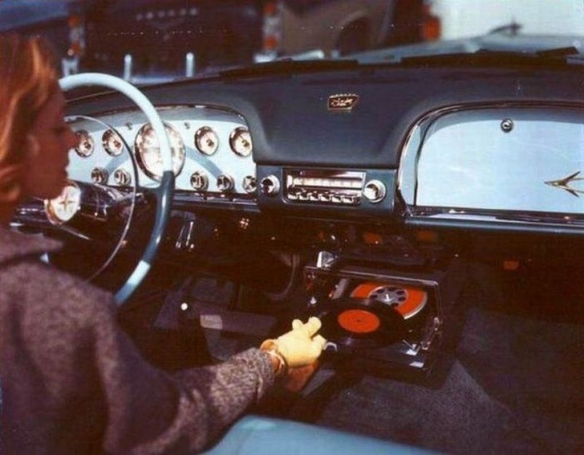
While I was putting today’s list of five songs/compositions together, I came across this quote from Canadian filmmaker Atom Egoyan: “People make decisions that may have one intent and yet are somehow perverted into something else. And sometimes it’s because of design. Sometimes it’s because of happenstance. But very often, it’s mysterious to them.” Food for thought.
Bette Davis, “I’ve Written a Letter to Daddy” (scene from the film What Ever Happened to Baby Jane?, 1962, dir. Robert Aldrich). Just in time for the new FX mini-series “Feud: Bette and Joan,” I watched What Ever Happened to Baby Jane?, featuring Bette Davis’s virtuoso performance as a former child star who grew older but never grew up. Ernest Haller’s stark cinematography makes “Baby Jane” look like a frightening wax figurine of Mary Pickford or some other silent star, a face that seems to be melting under the tonnage of caked-on stage makeup and still-golden ringlets. Simultaneously, Victor Buono, playing Edwin Flagg (the accompanist), offers his own master class in reactions to Jane’s grotesque exhibition.
Billy Idol, “Eyes Without a Face” (appears on the album Rebel Yell, 1983). Heard last night while walking past a store on Sixth Avenue (the chorus’s “Les yeux sans visage…” line sung by Perri Lister, wafting dreamily out of a speaker); I haven’t thought about this song in ages. I like to think that Billy Idol decided on the title before writing the song, either because he appreciated the 1960 horror film by Georges Franju, or just because it sounded to Idol and co-songwriter Steve Stevens like a cool name for a song. The lyrics don’t exactly connect with the title, but should that matter if the melody is memorable?
Peter Haycock, Derek Holt and Paul Di Franco (film score composers) featuring Eric Gale (guitar), “Closing Credits” (from the end credits of the film One False Move, 1992, dir. Carl Franklin). The year is young, but One False Move is definitely one of the finest films I have seen in 2017. Set in Los Angeles, on the highways of the Southwest and in the small town of Star City, Arkansas, the story combines film noir and Western genre elements in a uniquely blended crime drama that provided Bill Paxton with an excellent leading role (a naive rube of a sheriff who eventually learns that real crime can be vicious and bloody; imagine Fargo, but with a male lead instead of Frances McDormand). The film also granted superb supporting roles to Billy Bob Thornton (who co-wrote the original screenplay), Cynda Williams (who married Billy Bob shortly after filming wrapped in 1990, though they divorced in 1992), Michael Beach (a solid supporting actor for the last thirty years) and Natalie Canerday (who worked with Billy Bob again in Sling Blade, and later played Michael Shannon’s mother in Shotgun Stories).
P.S. If you want an additional endorsement: Gene Siskel gave One False Move the #1 spot on his list of the top ten best films of 1992 (his explanation for his choice starts at the 16:40 mark in the linked video).
Leonard Cohen featuring Sharon Robinson, “Everybody Knows” (appears on the album I’m Your Man, 1988; subsequent scene from the film Exotica, 1994, dir. Atom Egoyan). “Everybody knows, everybody knows/That’s how it goes/Everybody knows.” The Exotica nightclub is where the lives of several Toronto citizens intersect: stripper Christina (Mia Kirshner), tax/revenue agent Francis (Bruce Greenwood), rare egg smuggler Thomas (Don McKellar) and club owner Zoe (Arsinée Khanjian), as well as other characters who don’t appear in this particular clip – Eric (Elias Koteas), the club emcee who is obsessed with dancer Christina; Francis’s brother Harold (Victor Garber) and niece Tracey (Sarah Polley); the unnamed customs official (Calvin Green) who has a one-night stand with Thomas, putting Thomas’s contraband operation in jeopardy. These characters have messy pasts that have left them damaged psychologically and, in one case, also physically.
Atom Egoyan’s Exotica is a potent cocktail of sensuality and fatalism. And if one has to perform stripteases in order to make a living, as Christina must do every night for the Exotica clientele, then what better soundtrack for one to disrobe to than the soul-baring songbook of Leonard Cohen?
James Horner, “The Launch” (from the score composed for the film Apollo 13, 1995, dir. Ron Howard). While watching Apollo 13 again and listening to Ron Howard’s commentary track, I was struck by the dignity of James Horner’s score in the scene when the NASA spacecraft embarks on its “successful failure” of a lunar mission. The secret to Horner’s success was his ability to respectfully represent the power of ordinary people accomplishing extraordinary feats, especially when they are faced with seemingly insurmountable obstacles.
